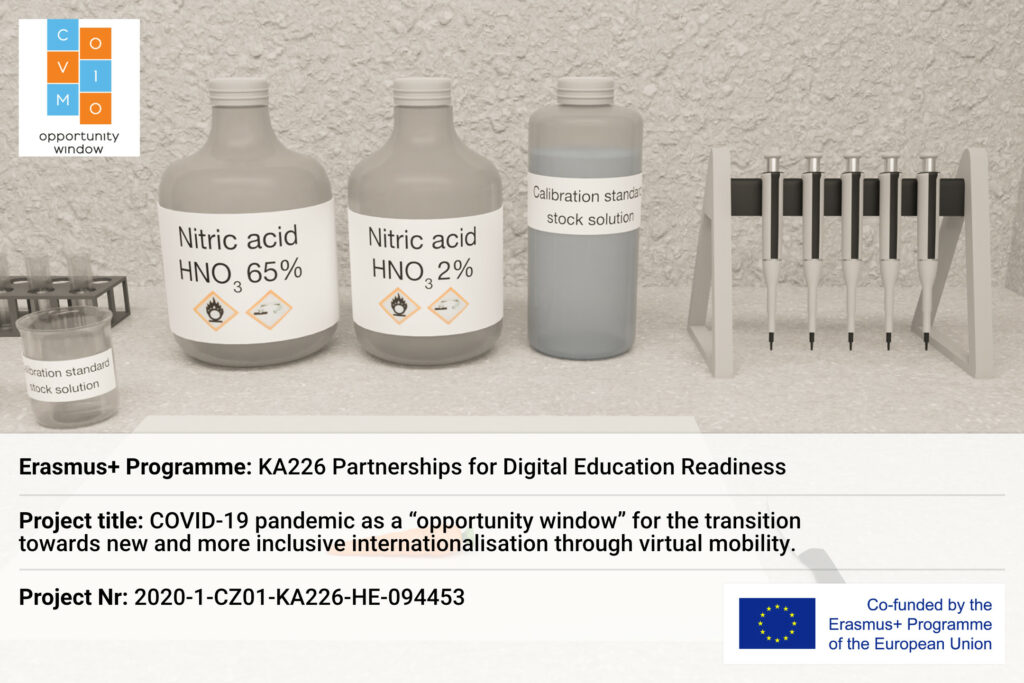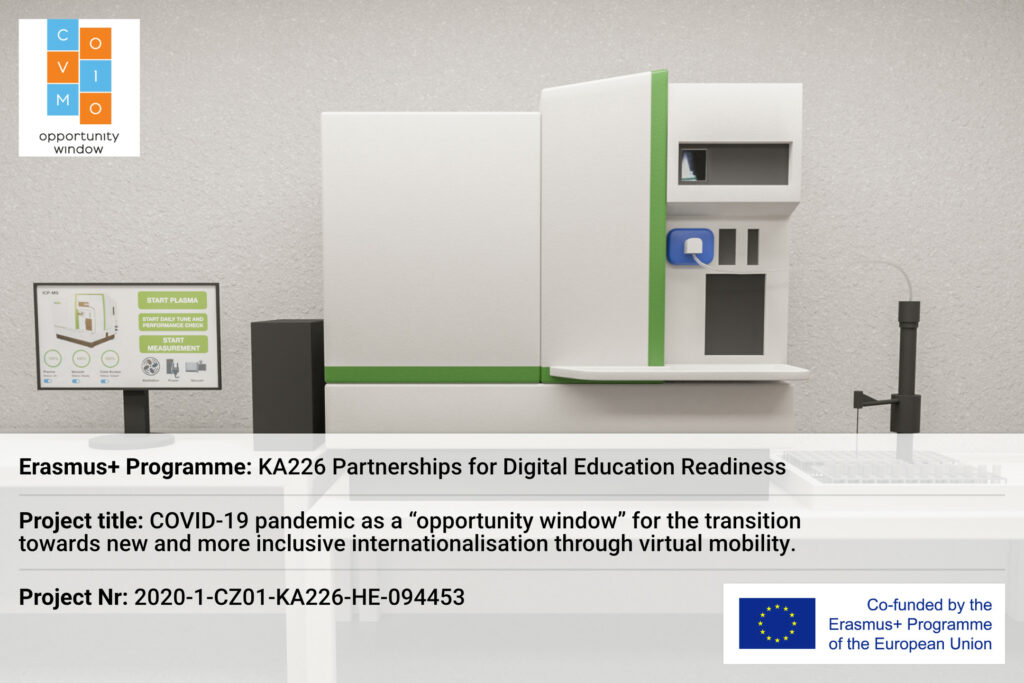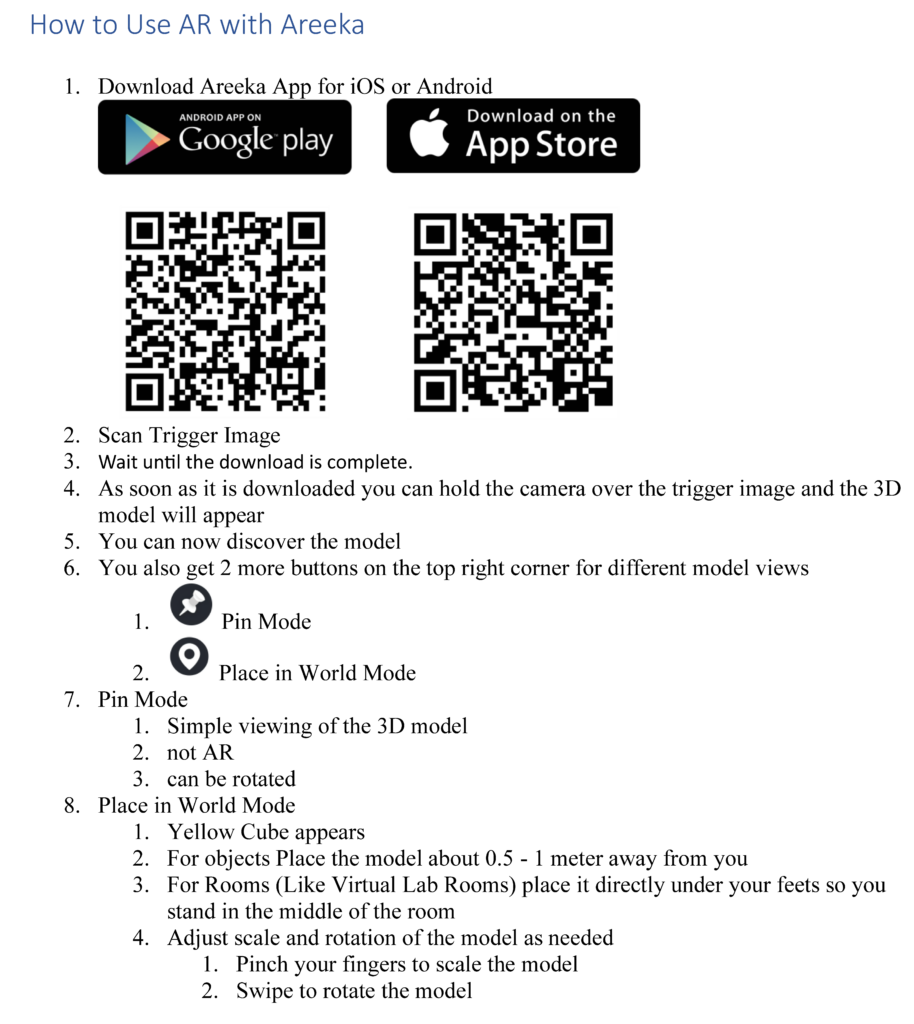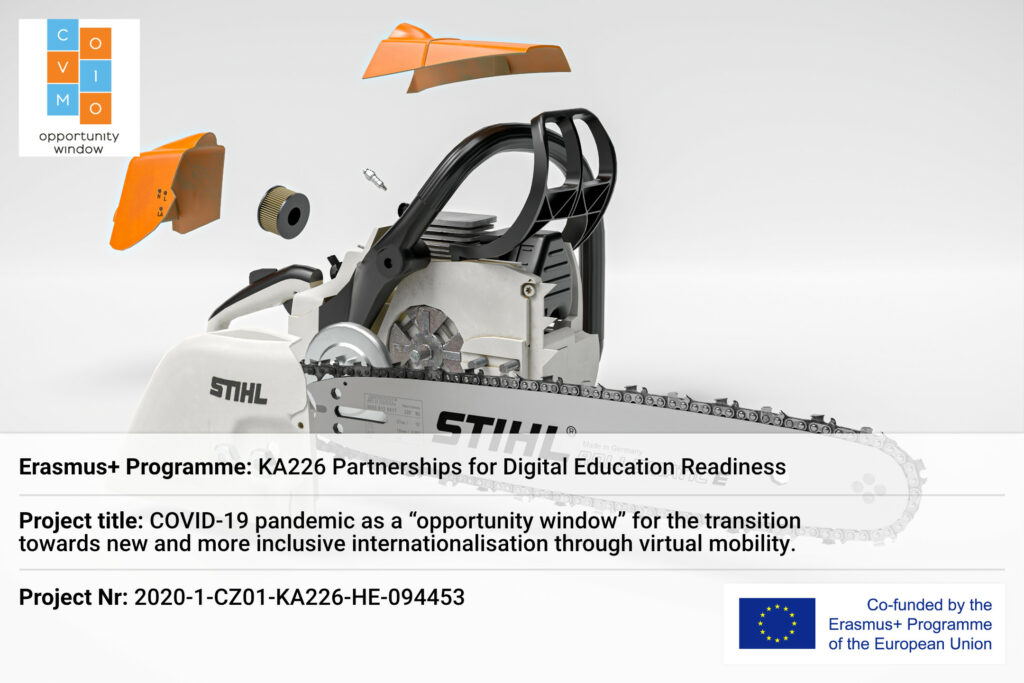KA226 Partnerships for Digital Education Readiness
COVIMO
Virtual Mobility Tools
VIRTUAL MOBILITY TOOLS
The Intellectual Output 1 - Virtual mobility tools
Coordinator: University of Natural Resources and Life Sciences (BOKU)
Bijnens, H. et al (eds.) European Cooperation in Education through Virtual Mobility: a Best-Practice Manual sees virtual mobility as a collaborative learning method, focusing on interculturality and knowledge exchange. Four types of virtual mobility can be considered as relevant:
- a virtual course or seminar,
- a virtual study programme,
- a virtual work placement,
- virtual support activities to physical exchange
The current approach supports all four of them.
The need for exchanging know-how and experience in advanced laboratory equipment from the distance as an inclusive element for partners with limited access to such tools and know-how has been chosen. Such virtual laboratory training in generic form exist but are relatively expensive.
Here the INNOVATION lies in transferring real-world labs at BOKU (starting at Core facility Mass spectrometry) into the virtual space, with interactive elements, but also links to personal exchange and additional specific training. This will be done by transferring the labs into a 3D environment and producing web-based learning and interaction with the lab equipment, supported with other online learning resources.
The TARGET GROUPS are teaching staff and students. Teaching staff will be involved in the production and testing, and quality assurance of the produced interactions. Students will be invited to test and provide feedback for improvement. The impact is improved access to otherwise inaccessible training and learning and can be well integrated into existing master programs, can be combined with physical exchange and learning activities, can be used for purely online learning and assessment.
The Intellectual Output 1 - Virtual mobility tools
Coordinator: University of Natural Resources and Life Sciences (BOKU)
Bijnens, H. et al (eds.) European Cooperation in Education through Virtual Mobility: a Best-Practice Manual sees virtual mobility as a collaborative learning method, focusing on interculturality and knowledge exchange. Four types of virtual mobility can be considered as relevant:
- a virtual course or seminar,
- a virtual study programme,
- a virtual work placement,
- virtual support activities to physical exchange
The current approach supports all four of them.
The need for exchanging know-how and experience in advanced laboratory equipment from the distance as an inclusive element for partners with limited access to such tools and know-how has been chosen. Such virtual laboratory training in generic form exist but are relatively expensive.
Here the INNOVATION lies in transferring real-world labs at BOKU (starting at Core facility Mass spectrometry) into the virtual space, with interactive elements, but also links to personal exchange and additional specific training. This will be done by transferring the labs into a 3D environment and producing web-based learning and interaction with the lab equipment, supported with other online learning resources.
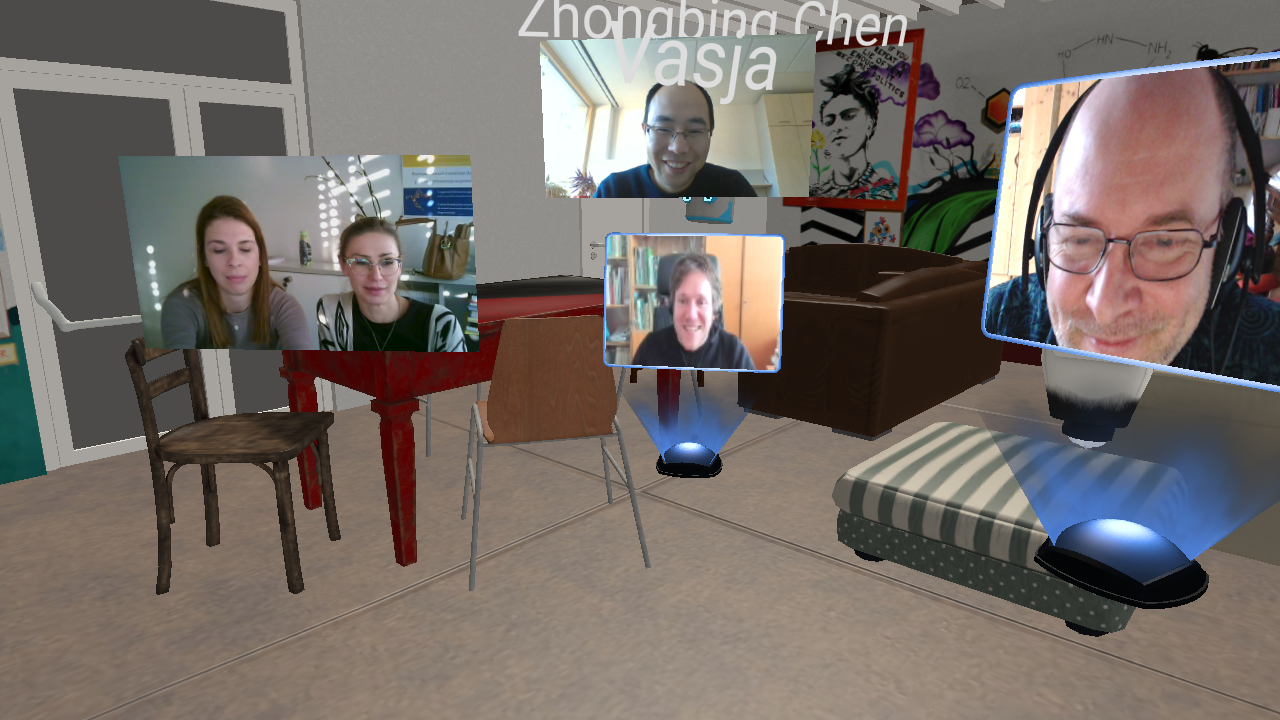
Online Student Cafe
The online student cafe aims at supporting student exchange for the sustainable future of tomorrow across Europe and the world. The focus is on social exchange to foster creativity, motiviation and sustainable entrepreneurship related to the SDGs.
The Cafe is now always open!
See the 360° image of the cafe in real, including an entry link below!
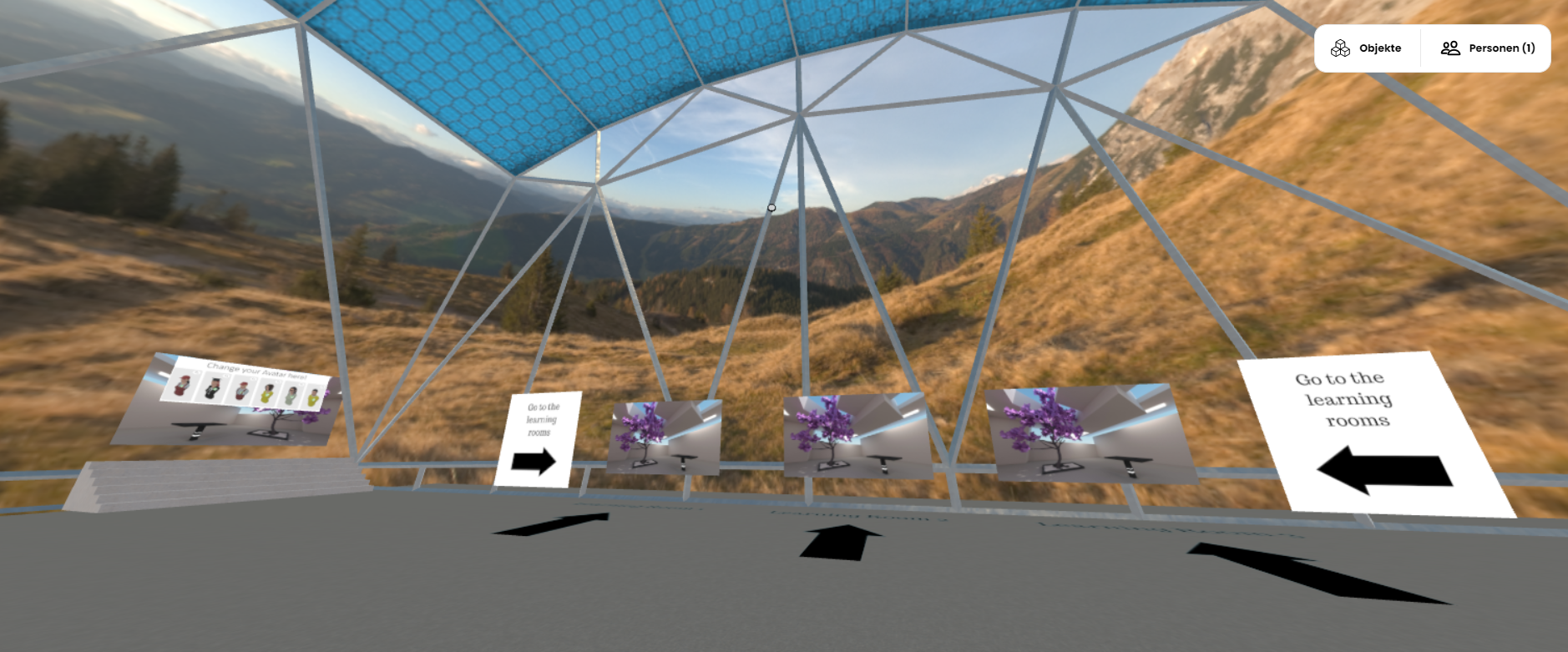
Wood Exploration room and Augmented Chainsaw Daily Maintenance
This hall, and the associated three separate learning rooms ("breakout-rooms) are used to train students in wood classification. The 3D models to be used in the environment were produced by the project partners by photogrammetry. GLB files are used as this format is standard for AR/VR environments.
The link to use this room for the wood classification training is available upon request to: andreas.zitek@boku.ac.at
You can explore the augmented chainsaw daily maintenance using the AREEKA APP (https://areeka.net/en/support/areeka-app/) and the trigger image below (find more instructions of how to use the AREEKA App and the trigger images at the end of this page).
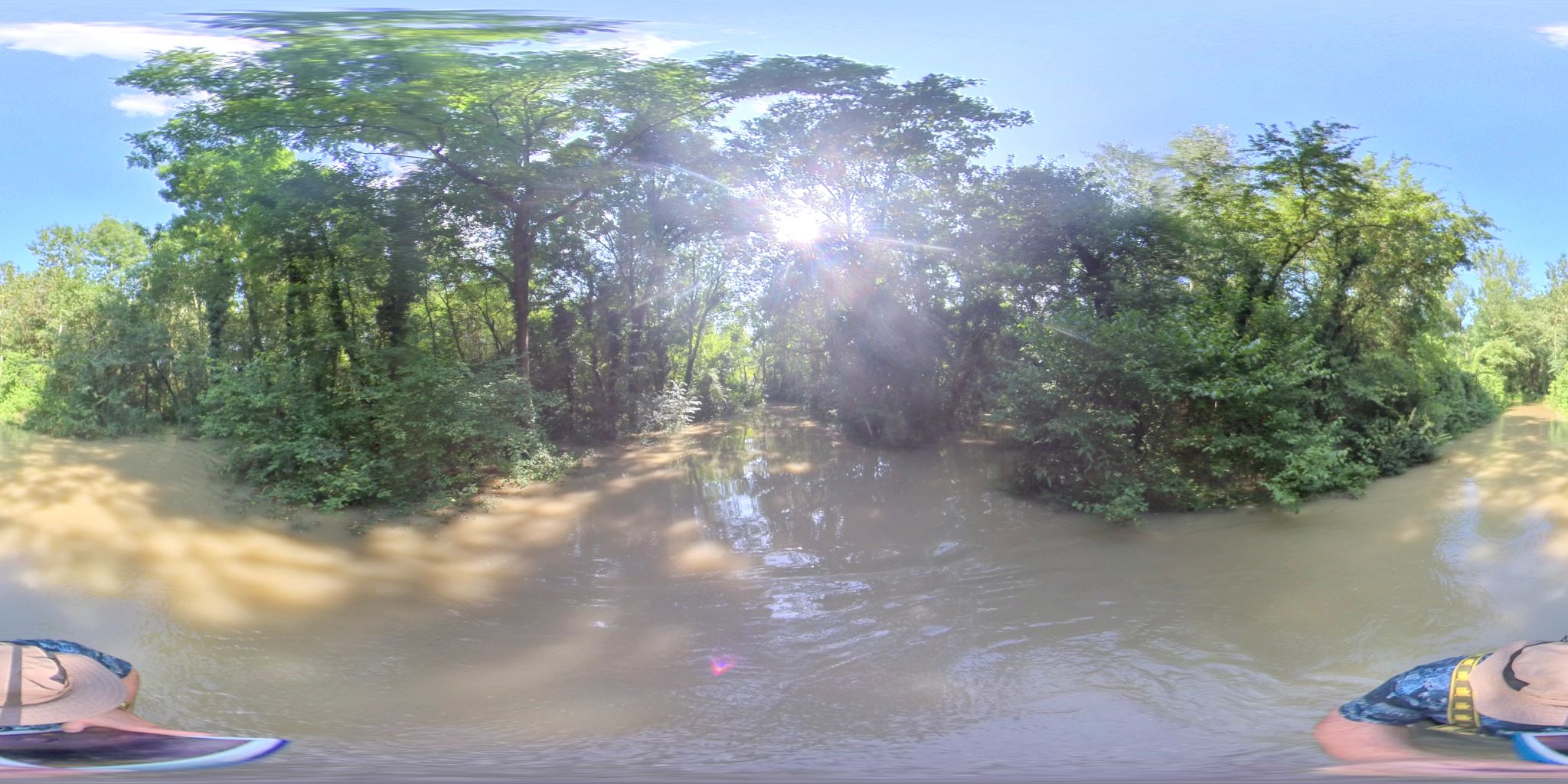
Floodplain 360° experience
The floodplain 360° experience will provide a journey through the floodplains along the Danube crossing most of the COVIMO partner countries. The images are used as input for a seamless interactive learning experience.
See a 360° image taken during a flood in the Viennese Danube floodplains below!
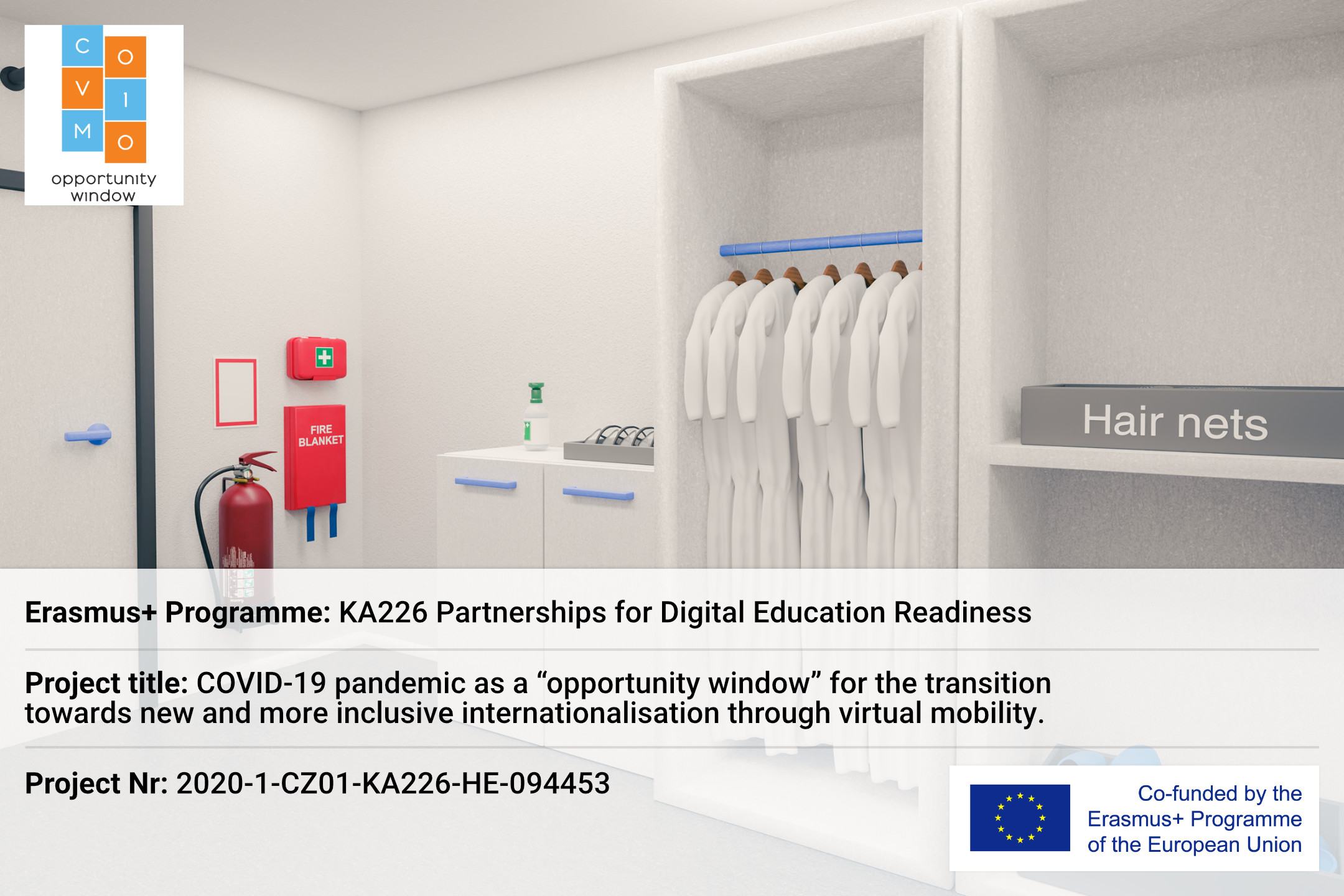
Virtual Mass Spectrometry Lab
The virtual mass spectrometry lab will be available as AR training provided via the AREEKA App (https://areeka.net/en/support/areeka-app/). It aims at the introduction of students to the mass spectrometric analysis of elements in food commodities like vegetables, fruits and fish.
It starts with getting familiar with lab rules and safety information. Next, sample preparation, reference standard preparation, and finally measurement and data evaluation can be trained.
The idea ist, that students can get familiar with important issues related to food analyis using mass spectrometry before they enter the real world lab.
You can use the trigger ABOVE scanned by the AREEKA APP on your smartphone or tablet to start with the wardrobe and safety information, and then use the the triggers BELOW to explore the sample preparation lab, followed by the mass spectrometry lab.
Find an instruction of how to download and run the augmented experiences using the AREEKA App at the end of this page.
